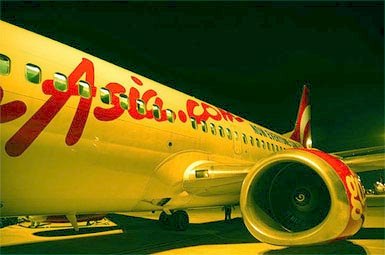Airline Industry will never be the same as the oil supply remains relatively low and the recent global recession continues. As the oil production decreases, the price of oil will start to increase again, which ultimately also raises the cost of flying. However, it will only happen in a long run. What the market faces is another challenge of recession and consumerism.

Since recession has already arrived, the Airline market will have to face several consequences due to the change in income level. Income level, in general, will shrink as business retrenchment proceeds globally. As a result, a change in preference reflects the airline market. Anyway, traveling can be identified as a luxurious good or a normal good or both. However, in an airline industry, airline companies usually distinguish themselves in 3 categories: budget airline, normal airline and luxurious airline. Of course, one can see a main company with a sub company, operating at a lower cost. They want to capture as much market demand as possible with the benefit of market (price) controlling. Airline industry is definitely a competitive market in a global scale. Some companies have certain advantages over others. The main focus of this post is on the results and changes in the airline industry as they encounter the problem of global recession.
Budget airlines will likely to be on a safe side during this period of global recession. On the other hand, normal airlines will suffer from a decrease in demand due to the shrinkage of disposable income or income level. In other words, it’s more like a normal good. When the economy is hit, travelers will cut back on expensive vacations and search for cheaper alternatives by flying on a low-cost budget airline. For example, 20% of the population takes luxurious airlines, 40% takes normal airlines and 40% takes budget airlines. As the income
 level shrinks, middle-income earners will most likely to be affected very much due to their exposures to investments. Assume, middle-income earners (40%) and low-income earners (40%) are affected by a decrease in 10% in their incomes. Certainly, middle-income earners will lose a big chunk, compared to low-income earners. How will that affect the airline industry? A 10% reduction in low-income earners’ income does not reflect much on their travels with budget airlines. Even if it does, middle-income earners will start to switch with traveling on budget airlines because now they lose a big chunk of their income. Middle-income earners might lose 4000(10%) = 400. Low-income earners might lose 2000(10%) = 200. Importantly, budget airline market will still benefit in many ways: low-income earners have no choice but to travel with budget airlines, new potential market of middle-income earners is switching to other cheaper alternatives, and a reduction in income level might not influence that much to the budget airline market. Suddenly, one can see a reduction in customers taking normal airlines. To ensure the flight route is viable for profits, “normal” airline companies are starting to cut down certain flights or decreasing the numbers of flights. Some companies might have to resolve in employees lay off.
level shrinks, middle-income earners will most likely to be affected very much due to their exposures to investments. Assume, middle-income earners (40%) and low-income earners (40%) are affected by a decrease in 10% in their incomes. Certainly, middle-income earners will lose a big chunk, compared to low-income earners. How will that affect the airline industry? A 10% reduction in low-income earners’ income does not reflect much on their travels with budget airlines. Even if it does, middle-income earners will start to switch with traveling on budget airlines because now they lose a big chunk of their income. Middle-income earners might lose 4000(10%) = 400. Low-income earners might lose 2000(10%) = 200. Importantly, budget airline market will still benefit in many ways: low-income earners have no choice but to travel with budget airlines, new potential market of middle-income earners is switching to other cheaper alternatives, and a reduction in income level might not influence that much to the budget airline market. Suddenly, one can see a reduction in customers taking normal airlines. To ensure the flight route is viable for profits, “normal” airline companies are starting to cut down certain flights or decreasing the numbers of flights. Some companies might have to resolve in employees lay off.For extra information on graphical explanations or any comments, feel free to ask me.







No comments:
Post a Comment